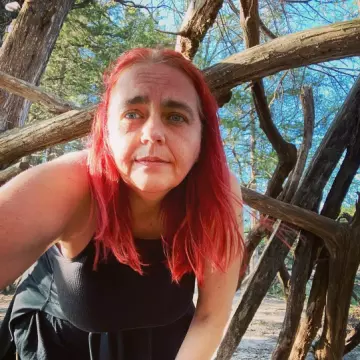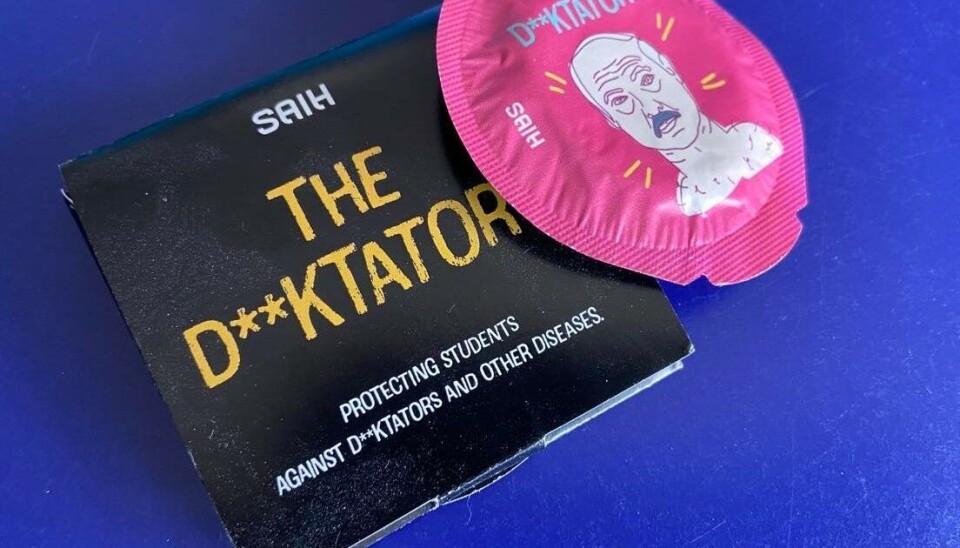
Birth Control and Sexual Health in Norway
Everything you need to know as an international student
Last June, just as I was beginning to pack for my move to Oslo, the news came that the United States Supreme Court had overturned Roe vs. Wade, the 1973 decision affirming the constitutional right to an abortion in my home country. Much has changed since I was last there; abortion is now banned in 14 states, including three that neighbor the state of Minnesota, where I grew up.
Listening to stories from the U.S. about individuals illegally obtaining abortion pills through the mail, about crisis pregnancy centers set up to intentionally mislead women about their reproduction options, and legislators who are seeking to criminalize those who assist women in getting abortions across state lines, I naturally found myself wondering: how does it work here in Norway? As international students who come from countries with widely ranging policies and practices regarding sexual and reproductive health, what do we all need to know about accessing services essential to our well-being here?
Birth Control
In Norway, everyone is entitled to information about contraceptives and can speak to a medical professional or counseling service to find options that are right for them. Some contraceptives, including condoms, diaphragms, and female condoms, are available without a prescription and can be purchased online or at pharmacies. Free condoms can be ordered online here.
Other methods of birth control, including the pill (or mini pill), vaginal ring, contraceptive patch, contraceptive injection, contraceptive implant, or intrauterine device (IUD) do require a prescription. You can read more about the different methods here, or talk with your regular doctor about options.
Sexually Transmitted Infections
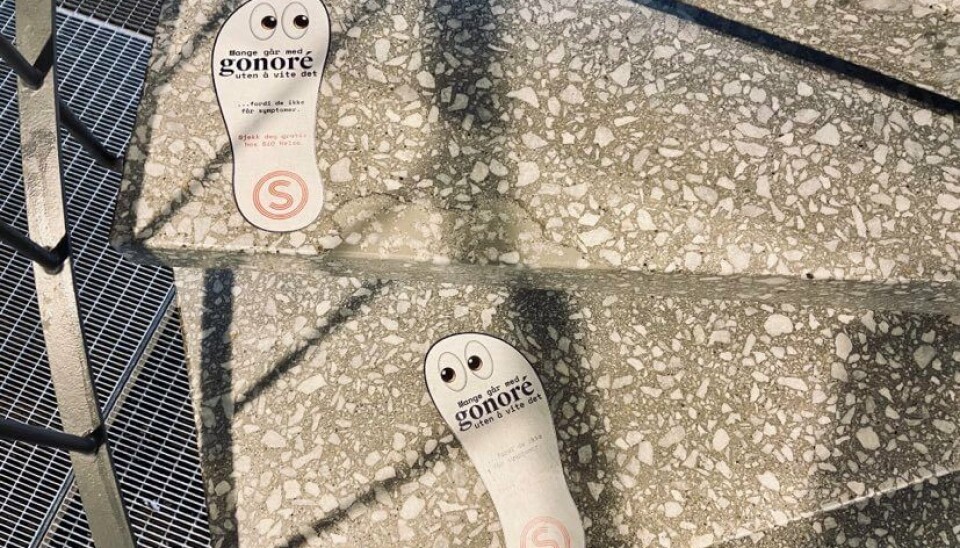
If you are sexually active, it’s possible that you are putting yourself at risk for sexually transmitted infections (STI). “In Norway, foreign students have the same rights to testing and treatment for STIs as Norwegian citizens,” says Rolf Martin Angeltvedt, Director of Helseutvalget. “Foreign students can apply for health services by registering with a general practitioner (GP) in their local municipality. The GP will be able to offer advice, testing and treatment for sexually transmitted infections. The most common STIs tested and treated in Norway include chlamydia, gonorrhea, syphilis, HIV and hepatitis B and C. It is also important to convey that everyone living with HIV and staying in Norway will have free access to medication and treatment.”
All students who have paid their semester fees can access SiO Health services, where condoms and testing for chlamydia, gonorrhea, HIV, syphilis, and hepatitis are free of charge – you need a doctor’s referral for testing, and you will have to pay a small fee for your visit with the physician. They can also provide guidance related to contraception, pregnancy, and relationship issues, and help answer questions about sexual orientation or gender identity.
Services at the Sex og Samfunn clinic are open to anyone under the age of 25, including international students. According to Anneli Rønes, Political Advisor at Sex og Samfunn, the clinic does offer limited services to those over 25 which include “follow-up of people on PEP (Post-exposure prophylaxis), persons buying sex, and persons with experience from chemsex.” Consultations and registration forms here are available in English.
Anneli says, “All our services are free of charge for those under the age of 25. Prescriptions are given out free of charge. Medicines (including contraception), referrals etc. will not be covered.”
She adds, “We have an online chat, hosted by healthcare personnel. The chat is online Monday-Thursday from 11.30-19.00. To access the services in our clinic at Grünerløkka, you can either use our drop-in service or you can book through the app Helseboka. Free condoms are available at our clinic; there is no need for a consultation.”
Sexual Violence and Harrassment
The age of legal sexual consent in Norway is 16. While Norway does not have a consent law, which asks that both parties directly or indirectly consent to sexual relations, rape and sexual assault are serious offenses. Asking your partner for consent (even something as simple as, “Is this ok?”) is a good idea. Rape and sexual assault do occur in committed relationships. Having sex with someone while they are sleeping or otherwise unconscious is considered rape. Someone sharing naked pictures of you online without your consent is also considered sexual violence.
Know your emergency numbers! If you are in urgent need of police intervention, call 112 for immediate attention. If you need an ambulance in case of a life-threatening situation, call 113. Legevakten (23 48 70 90) offers a 24-hour sexual assault and violence clinic where staff can help with pregnancy and STD prevention, treatment of injuries, and collecting trace evidence for police intervention. You can also find more information about sexual violence and abuse here.
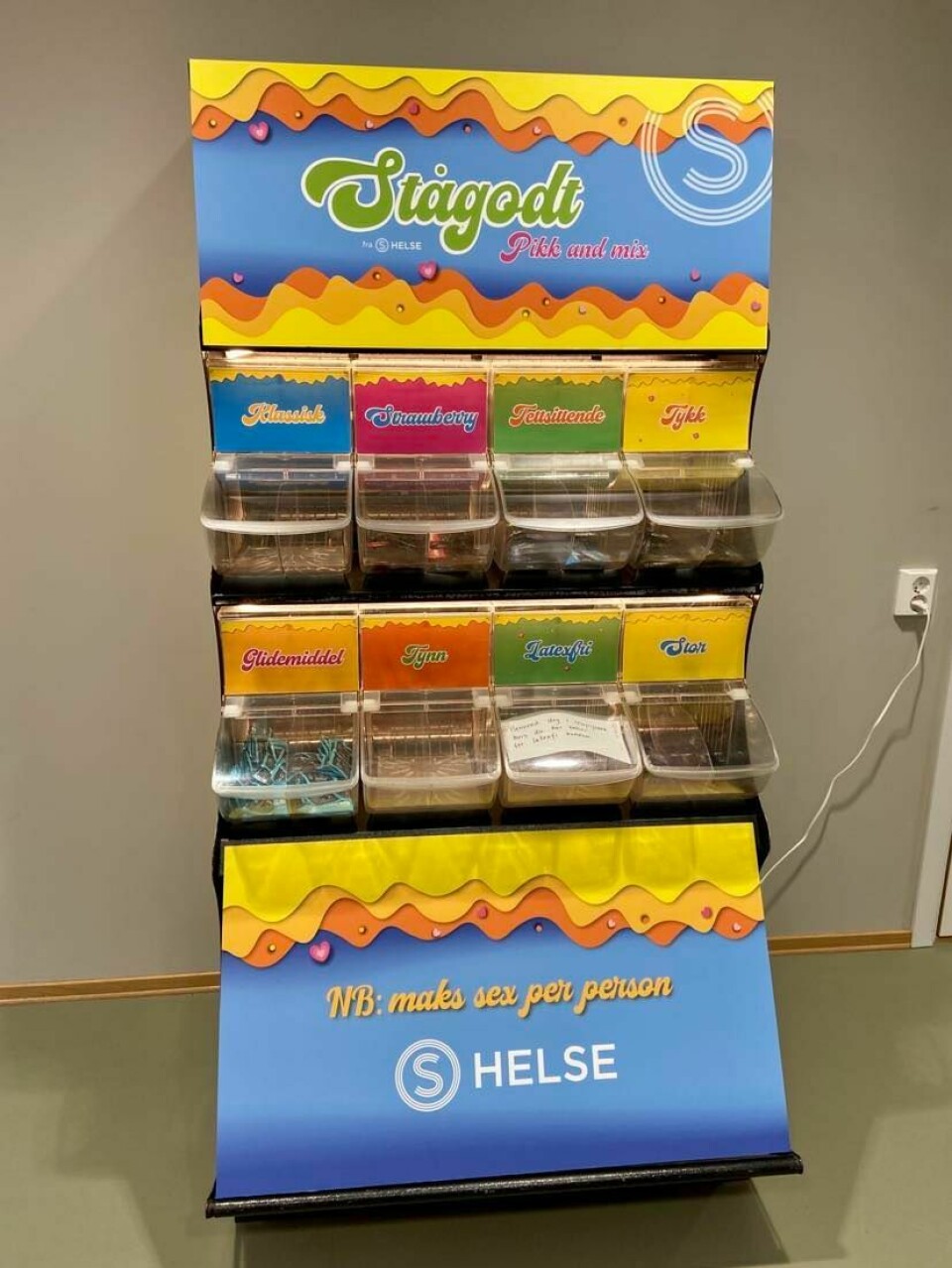
Abortion
All women are entitled to seek an abortion in Norway during the first 12 weeks of their pregnancy, and can do so here without getting a referral from their regular doctor. Both medical and surgical options are available, and there is no reflection period required. You don’t need to explain your reasons for wanting an abortion. If you’re over 12 weeks pregnant, you will have to seek special permission, so it’s good to make an appointment as soon as possible if you think abortion is the right decision for you. You are allowed to change your mind up until abortion is induced.
If you’re covered by the national insurance scheme in Norway, no payment is required for the procedure, although you will want to check with your specific clinic to see if there are any other fees associated. If you are not covered, you may have to pay out of pocket, but you will not be expected to pay up-front.
Andrea Skaarer Kreutz, Director of Amathea, a free, nationwide health service for those over the age of 25 or who have no other low-threshold service available, was happy to answer questions about services provided for those covered by the national insurance scheme, which includes international students with D-numbers.
“We have extensive experience and expertise in follow-up before and after abortion. We offer services for everyone, women and men, alone or together,” says Andrea. These include:
talking to those who have become pregnant and are unsure of what to do,
conversation with those who have been through an abortion,
contraception guidance and insertion of IUDs and IUDs,
conversation with knowledge about your own body and women's health for those who want it.
Andrea reports that, after the first of July, Amathea will have four office locations in Norway: Oslo, Bergen, Trondheim, and Tromsø. “All our conversations can be had at one of the offices, by phone, or as a video call. We speak Norwegian and English and can call in interpreters in other languages.”
LGBTQIA+ Healthcare
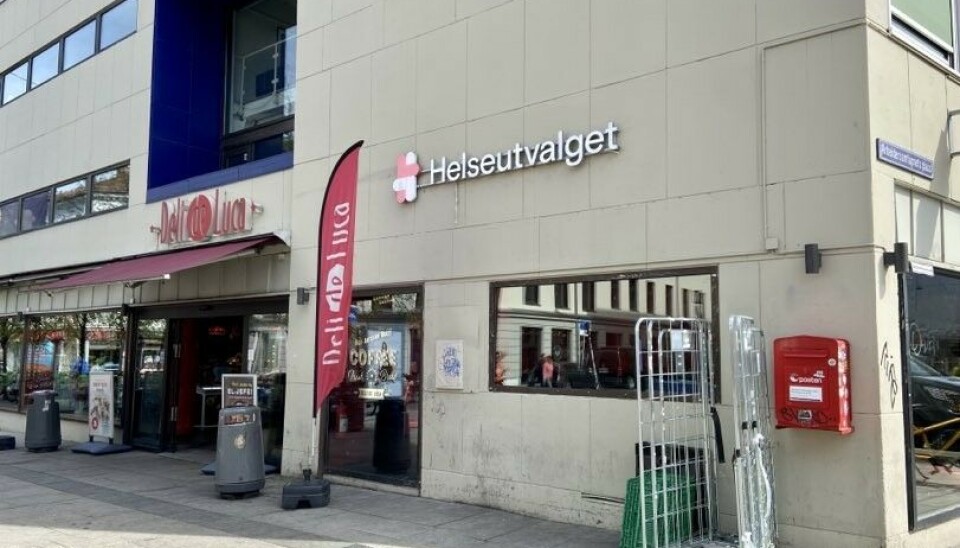
Helseutvalget, Skeiv Verden, and Fri - Oslo og Viken are good places to turn to for resources and support regarding issues related to LGBTQIA+ health and more.
According to Rolf Martin Angeltvedt, Director of Helseutvalget, the organization offers a service called Sjekkpunkt, which is “tailored for men who have sex with men. Here we offer rapid testing for HIV and syphilis where you get an answer right away. In addition, you will be able to test yourself for gonorrhea and chlamydia, which takes place in collaboration with Først laboratories, and you will have the test results within a few days. All our staff and volunteers speak English, and some other languages as well. We also distribute free condoms.”
“Sjekkpunkt does not offer PrEP (preventive HIV treatment), but can assist with advice and guidance on how to proceed to gain access to the medication. Men who have sex with men also have the option of being vaccinated against hepatitis B free of charge.” Rolf helpfully advises that, “not all GPs are aware of this and sometimes it can be helpful to have the documentation the Norwegian Directorate of Health sent out to all health institutions in 2019.” Information about the monkeypox vaccine, and who is eligible to receive it, is also available here.
Helseutvalget also offers a free course for migrants on the ABCs of Love, in collaboration with Skeiv Verden, a national, member-based organization for LGBTQ-people with a minority background. “This is a broad group of people, including migrants, people arriving through family reunification, students, workers, people born in Norway by minority parents, and people who live in Norway only temporarily or with uncertain residency,” says Anders Gjøs Løkkeberg, Health advisor and Psychologist with Skeiv Verden Sentralt.
Anders continues,“We work with the whole person. We offer therapy about mental and sexual health, drug use, trauma and abuse, as well as counseling on asylum cases, navigation in different help services and living conditions. Our therapists and counselors speak several languages themselves, and we use volunteers for interpretation when that is needed.” All offers through Skeiv Verden are free; “the only thing we ask is that people become members of the organization, which costs 100kr. But if someone can’t pay, everyone is still very welcome to use our services.”
Skeiv Verden offers four different meeting places for those seeking community:
Skeiv Kafé (open to everyone, available in Oslo, Trondheim, Bergen, Stavanger and Hamar),
FOLK (for queer women, trans people and non-binary people, available in Oslo),
Youth group (age 13-25, available in Oslo),
Språkkafé (where you can learn Norwegian, available in Oslo and Bergen).
“In these meeting places, the most important thing is to have a safe space where you can be yourself and build community,” explains Anders. The organization also works to improve social conditions for queer people with minority backgrounds by offering courses and workshops at asylum centers, in health- and social services, schools and introduction programs, and through political advocacy.
Anders adds, “We have a significant group of volunteers that help with all sorts of work. For instance, volunteers help with making food at Skeiv Kafé, they interpret during counseling and workshops and they help organize during events like Pride and the International Women's day.
Volunteers also accompany people to Rikshospitalet for gender affirming treatment if a member comes from outside Oslo and wants support. There are loads of opportunities to help and to become part of a community while doing it! If you want to reach us, we are available through post@skeivverden.no or at skeivverden.no.”
As an additional note, gender-affirming treatment as a trans international student may require some help navigating (see resources above). According to a guide made available on the Foreningfri website, you must have permanent residence in Norway and have been in the country for at least 12 months in order to access services such as hormone treatments. You may, however, be able to seek private healthcare.
Pregnancy
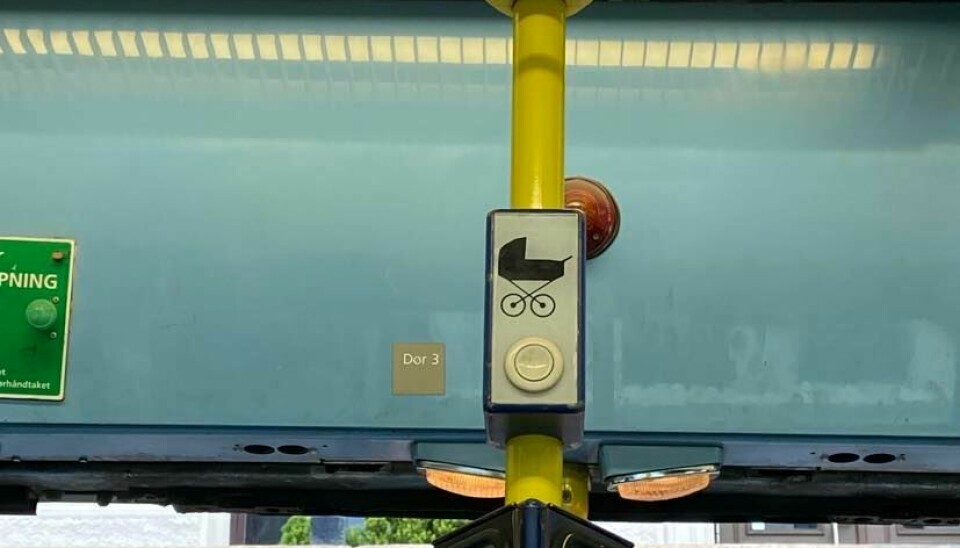
Pregnancy tests can be purchased in most supermarkets and pharmacies. If you are pregnant, the Helsedirektorat offers a helpful brochure about what to expect, available in a variety of languages.There’s even a helpful vocabulary list accompanying each chapter for those of you learning Norwegian along the way. Talk to your regular doctor about options. You’ll also want to check in with your academic faculty if you are considering a parental leave of absence.
Andrea Skaarer Kreutz, Director of Amathea, tells us that “follow-up during pregnancy in Norway is free, either with a GP or a midwife in the municipality.” In the event of a miscarriage, Amathea also offers counseling sessions free of charge to individuals covered by the national insurance scheme, in person, over the phone, or by video. Sessions are available in Norwegian or English; they can also book an interpreter if you’d feel more comfortable in another language.
Mental Health
Finally, remember that mental health is health! You can book an appointment through SiO to talk to an experienced counselor or psychologist about any issue you might have on your mind.
